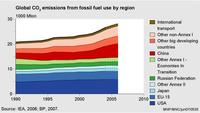-
UAV developer CyPhy Works raises $7 million to build flying robots
Danvers, Massachusetts-based CyPhy Works, a developer of advanced UAVs, the other day announced the close of a $7 million financing round led by Lux Capital, with participation from General Catalyst Partners, Felicis Ventures, and several undisclosed angel investors. As part of the financing, Lux Capital Partner Bilal Zuberi will join the CyPhy Works board of directors. The company says it targets 24/7 “persistent” operations.
-
-
Many Android vulnerabilities result from manufacturer modifications
Computer security researchers have found that Android smartphone manufacturers are inadvertently incorporating new vulnerabilities into their products when they customize the phones before sale, according to a recent study. On average, the researchers found that 60 percent of the vulnerabilities found in the smartphone models they evaluated were due to such “vendor customizations.”
-
-
China buys Implant Sciences explosives detectors to protect nuclear power plants
Implant Sciences has sold multiple units of its QS-H150 handheld explosives trace detectors to a customer in China, who will be deploy them across several locations for the purpose of protecting nuclear power plants in multi-layered security environments.
-
-
Colleges incorporate homeland security into their curriculum
The establishment of the Department of Homeland Security(DHS) in the aftermath of the 9/11 attacks has made “homeland security” a common phrase and a flourishing industry in the United States. Service providers and manufacturers have benefited by introducing devices and offerings to protect, detect, and react to natural and man-made disasters. Colleges and universities have also begun to incorporate homeland security into their curriculum.
-
-
Pyreos, ultra‐low power consumption IR sensor specialist, secures $4 million investment
Edinburgh, Scotland-based Pyreos Limited, a specialist in ultra‐low power consumption infrared sensor technology, the other day announced plans for international expansion after securing a further funding round of $4 million. It is possible to use Pyreos sensor arrays in many applications, among them border security, where they can identify human movement at distances of several kilometers.
-
-
Planet’s arable land rapidly degrading

Great civilizations have fallen because they failed to prevent the degradation of the soils on which they were founded. The modern world could suffer the same fate. A new study describes how the productivity of many lands has been dramatically reduced as a result of soil erosion, accumulation of salinity, and nutrient depletion.
-
-
Nigeria, Israel cooperate in fighting terrorism
Nigerian president Goodluck Jonathan last week led a large Nigerian delegation to an official visit in Israel to discuss cooperation in fighting terrorism. “There is no doubt that Israel has had decades of experience in combating terrorism. Nigeria can benefit tremendously from your experience in this area,” Jonathan told President Shimon Peres. The two countries have also seen an expansion of trade relationship between them, with more the fifty Israeli companies operating in Nigeria.
-
-
Resources on disaster preparedness, resilience

One year after Superstorm Sandy hit the eastern United States, local, state, and federal agencies as well as community groups and businesses are working to strengthen the U.S.s resilience to future disasters. A National Research Council (NRC) has issues a series of studies and reports, and has put together workshops and study groups, which should advance the national conversation on preparedness and resilience.
-
-
Zapping bugs dead

Restaurants and supermarkets could save millions of dollars by hanging on to bug zapper bulbs instead of tossing them every year as they normally do, a new study has found. What is more, the benefits could extend to the environment by keeping some of the bulbs’ mercury out of the waste stream.
-
-
Bill bolsters DHS’s cybersecurity workforce
A House panel recently approved HR 3107, a bill aiming to bolster DHS’s cybersecurity workforce. The House Homeland Security Committeeamended the Homeland Security Cybersecurity Boots-on-the-Ground Actto expand DHS’ outreach to candidates for IT security jobs by creating a tuition-for-work fellowship and a program to recruit military veterans and unemployed IT specialists for DHS employment.
-
-
U.S. policy should encourage foreign Ph.D. students to stay: study

Attracting more talented foreign students to study at U.S. universities and encouraging them to launch entrepreneurial ventures here could help “revitalize innovation and economic growth” in this country, three economists conclude in a new study. The researchers have found that high-performing foreign-born Ph.D. students improve the “creation of knowledge” in U.S. universities. When knowledge is created, it tends to drive entrepreneurial investment and economic growth.
-
-
2012 sees slowdown in the increase in global CO2 emissions

Actual global emissions of carbon dioxide (CO2) reached a new record of 34.5 billion tons in 2012. Yet, the increase in global CO2 emissions in that year slowed down to 1.1 percent, which was less than half the average annual increase of 2.9 percent over the last decade. This is remarkable, as the global economy grew by 3.5 percent. This development signals a shift toward less fossil-fuel-intensive activities, more use of renewable energy, and increased energy saving. Increases in fossil-fuel consumption in 2012 were 2.2 percent for natural gas, 0.9 percent for oil products, and 0.6 percent for coal.
-
-
DHS, FDA: Decorative contact lenses for Halloween costumes are risky
Many will celebrate Halloween today, and federal officials are warning the public about the dangers associated with counterfeit decorative contact lenses. Decorative and colored lenses are becoming increasingly popular, especially around this time of year. Several federal agencies have teamed up to launch Operation Double Vision – already underway — to seize illegal, harmful products from store shelves.
-
-
Trustev closes $3 million seed funding round
According to research by eMarketer, global e-commerce sales are expected to reach nearly $1.3 trillion in 2013, making online fraud prevention an urgent and important requirement for every merchant. Trustev addresses this requirement by using multiple dynamic data sources to independently verify a user’s identity on e-commerce sites. The company has just closed a $3 million seed funding round to finance the further development of its e-commerce security and online fraud protection technology.
-
-
U.S. tech companies increase lobbying efforts related to surveillance, NSA
Technology firms Apple, Google, Facebook, and Microsoft, among other tech powerhouses, are quietly increasing lobbying efforts directed at government surveillance laws as they seek to have a say in what Congress does regarding surveillance reforms and National Security Agency (NSA) programs. Traditionally, tech firms have not pushed for restrictions on the ability of the U.S. intelligence community to collect data, and it is not clear what position these industry leaders will take, whether they plan to take a position at all, or whether they will present lawmakers with a united industry front.
-
More headlines
The long view
Factories First: Winning the Drone War Before It Starts
Wars are won by factories before they are won on the battlefield,Martin C. Feldmann writes, noting that the United States lacks the manufacturing depth for the coming drone age. Rectifying this situation “will take far more than procurement tweaks,” Feldmann writes. “It demands a national-level, wartime-scale industrial mobilization.”
Trump Is Fast-Tracking New Coal Mines — Even When They Don’t Make Economic Sense
By Katie Myers
In Appalachian Tennessee, mines shut down and couldn’t pay their debts. Now a new one is opening under the guise of an “energy emergency.”
Smaller Nuclear Reactors Spark Renewed Interest in a Once-Shunned Energy Source
By David Montgomery
In the past two years, half the states have taken action to promote nuclear power, from creating nuclear task forces to integrating nuclear into long-term energy plans.
